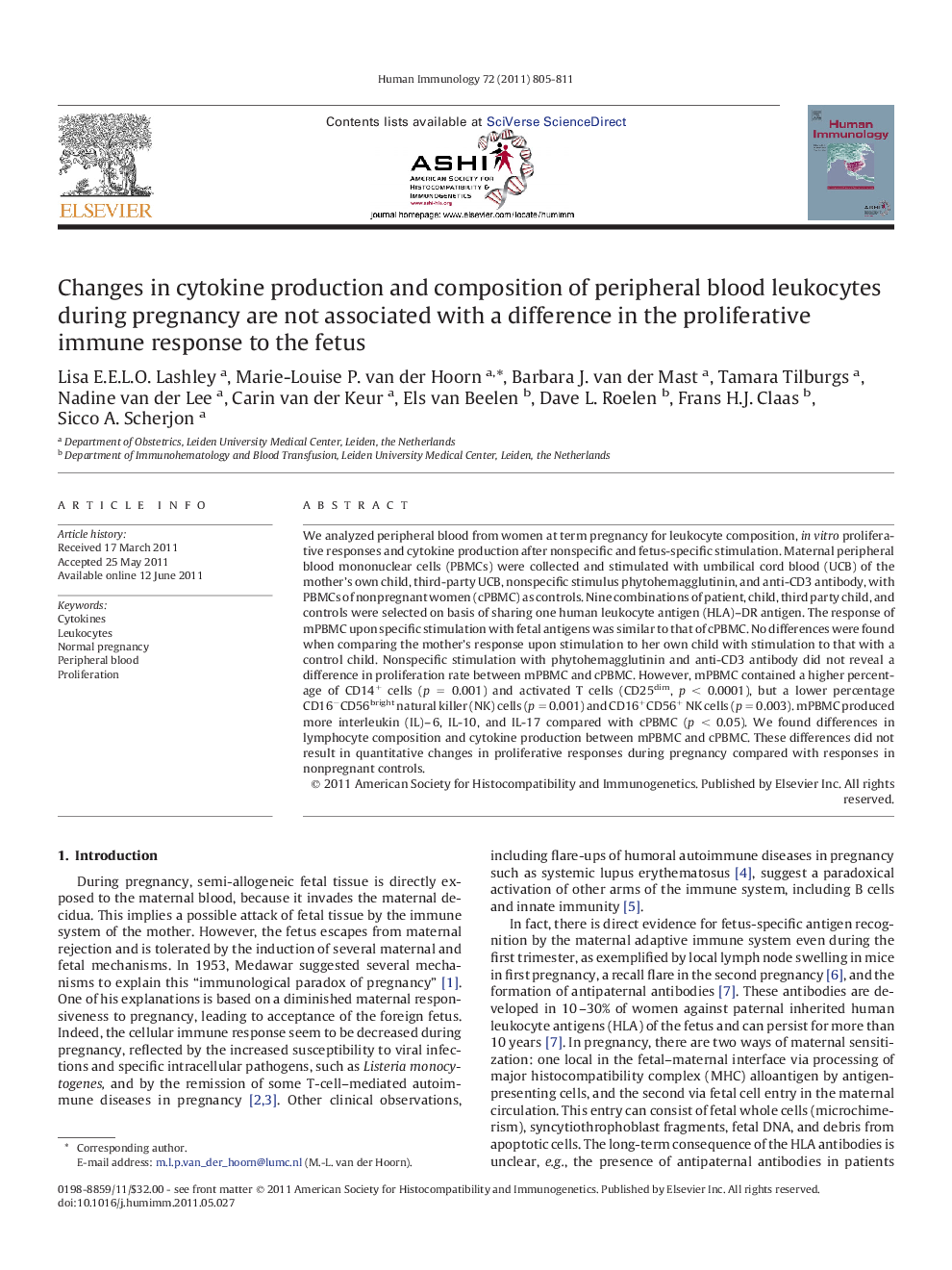| Article ID | Journal | Published Year | Pages | File Type |
|---|---|---|---|---|
| 3350699 | Human Immunology | 2011 | 7 Pages |
We analyzed peripheral blood from women at term pregnancy for leukocyte composition, in vitro proliferative responses and cytokine production after nonspecific and fetus-specific stimulation. Maternal peripheral blood mononuclear cells (PBMCs) were collected and stimulated with umbilical cord blood (UCB) of the mother's own child, third-party UCB, nonspecific stimulus phytohemagglutinin, and anti-CD3 antibody, with PBMCs of nonpregnant women (cPBMC) as controls. Nine combinations of patient, child, third party child, and controls were selected on basis of sharing one human leukocyte antigen (HLA)–DR antigen. The response of mPBMC upon specific stimulation with fetal antigens was similar to that of cPBMC. No differences were found when comparing the mother's response upon stimulation to her own child with stimulation to that with a control child. Nonspecific stimulation with phytohemagglutinin and anti-CD3 antibody did not reveal a difference in proliferation rate between mPBMC and cPBMC. However, mPBMC contained a higher percentage of CD14+ cells (p = 0.001) and activated T cells (CD25dim, p < 0.0001), but a lower percentage CD16−CD56bright natural killer (NK) cells (p = 0.001) and CD16+CD56+ NK cells (p = 0.003). mPBMC produced more interleukin (IL)–6, IL-10, and IL-17 compared with cPBMC (p < 0.05). We found differences in lymphocyte composition and cytokine production between mPBMC and cPBMC. These differences did not result in quantitative changes in proliferative responses during pregnancy compared with responses in nonpregnant controls.
